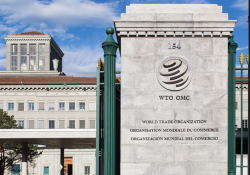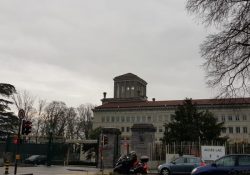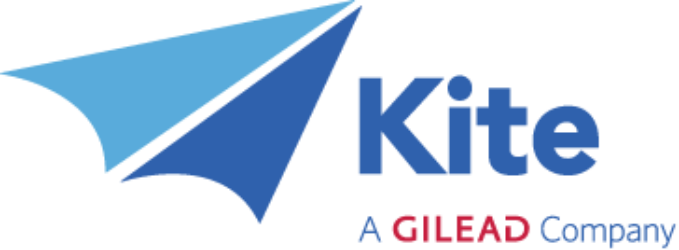SCCR33: Opening statement of the Asia Pacific Group (delivered by India)
Opening Statement by India on behalf of the Asia and the Pacific Group at 33rd Session of the of the Standing Committee on Copyright and Related Rights, delivered by Dr. Sumit Seth (Economic Affairs) on 14 November 2016
Mr. Chair,India has the honor to deliver the Opening Statement on behalf of the Asia and the Pacific Group in this 33rd Session of the Standing Committee on Copyright and Related Rights.
9 November 2016 – WTO TRIPS Council – EU’s intervention on the Report of the UN High-Level Panel on Access to Medicines
On Wednesday, 9 November 2016, the European Union delivered the following statement at the World Trade Organization’s (WTO) TRIPS Council’s discussions of the United Nations Secretary-General’s High Level Panel Report on Access to Medicines.
UNITED NATIONS SECRETARY-GENERAL’S HIGH LEVEL PANEL REPORT ON ACCESS TO MEDICINES
The European Commission takes note of the contribution provided by the Report of the United Nations Secretary-General’s High-Level Panel on Access to Medicines.
9 November 2016 – WTO TRIPS Council – EU’s intervention on Intellectual Property and Innovation – Regional Innovation Models
Australia, the European Union, Japan, Switzerland, Chinese Taipei and the United States requested the Secretariat of the World Trade Organization (WTO) to place an item on the agenda of the November 2016 TRIPS Council agenda entitled – “Intellectual Property and Innovation: Regional Innovation Models. On 9 November 2016, the European Union delivered the following intervention on regional innovations models. Intellectual Property and Innovation have been on the agenda of the TRIPS Council since 2012.
IP AND INNOVATION: REGIONAL INNOVATION MODELS
India Patent Office denies patent for prostate cancer drug sold under brand name Xtandi, generic name enzalutamide
Updated
According to this story, the India Patent Office has denied a patent for the prostate cancer drug sold under the brand name Xtandi (generic name Enzalutamide). Opponents of the patent claimed it was a new form of a known substance, and not eligible in India under Section 3(d) of its patent act.9 November 2016 – WTO TRIPS Council – Brazil’s intervention on the Report of the UN High-Level Panel on Access to Medicines
On 9 November 2016, the World Trade Organization’s (WTO) TRIPS Council held discussions on the United Nations Secretary-General’s High-Level Panel Report on Access to Medicines (UN HLP). These timely WTO discussions on the UN HLP germinated from a 27 October 2016 request by Brazil, China, India and South Africa requesting the WTO Secretariat to place a dedicated agenda item for consideration at the 8-9 November 2016 session of the TRIPS Council entitled “the United Nations Secretary-General’s High-Level Panel Report on Access to Medicines.”
2016: Kite Pharma, KEI Comments on NIH Proposed Exclusive License for Cancer Treatment
Today, KEI submitted comments to the Notice published in the Federal Register on October 5, 2016, entitled “Prospective Grant of Exclusive Patent License: Development of Anti-CD70 Chimeric Antigen Receptors for the Treatment of CD70 Expressing Cancers.” KEI’s comments addressed issues with the NIH’s processes for granting exclusive licenses, and transparency in those licenses, resulting data, trials, pricing, and revenue.
Continue ReadingKite Pharma Uses CRADAs to Conduct Important Clinical Research on New Cancer Treatments
Kite Pharma, Inc., which is racing Juno Therapeutics and Swiss pharmaceutical giant Novartis to successfully bring the first T-cell receptor (TCR) therapy to market, relies heavily on government support in the course of its research and development.
As noted previously by KEI, in various comments to the National Institutes of Health, the NIH rarely discloses detailed information on its connections with industry, raising concerns about how the NIH licenses out taxpayer-funded technologies without regard for future prices or access for U.S. residents.
For a selected bibliography of news stories on Kite’s relationship with the National Cancer Institute, see here: /node/2644.
T-cell receptor therapy is the latest breakthrough in cancer treatment, and involves modifying a patient’s own cells to better track and destroy cancer proteins, and then reintroducing them into the body. (The NIH has a concise description for non-scientists here.)
Dr. Steven A. Rosenberg is the Principal Investigator for the National Cancer Institute on Kite’s 2012 CRADA. Dr. Rosenberg mentored Kite CEO and co-Founder Dr. Arie Belldegrun, and is also listed as a “Special Advisor” to Kite on their website. | Partnership for Public Service / Aaron Clamage According to Kite’s filings with the Securities and Exchange Commission (SEC), Kite has secured three Cooperative Research and Development Agreements (CRADAs) with the National Cancer Institute (NCI). In exchange for quarterly cash payments, the NCI conducts clinical trials and laboratory work on many of its own patented technologies, with the understanding that Kite will have the rights to commercialize any successful products developed through the CRADA.
Continue Reading56 NGOs ask US Government enable export of low cost generic versions Xtandi to developing countries
17 OCTOBER 2016
CONTACT: Zack Struver, zack.struver@keionline.org, +1-202-332-2670, or Paul Davis, pdavis@keionline.org, +1-202-332-2670
Note: Letter from Biolyse to HHS here: /wp-content/uploads/28-sept-2016-biolyse-to-hhs-letter.pdf
Letter from NGOs to HHS here: /wp-content/uploads/17-oct-2016-civil-society-letter-xtandi.pdf
Washington, DC — Today, over 50 patient, senior citizen, global health, development, social justice, and faith groups urged the United States Government to use its rights in a federally funded patented invention, and accept the request by a Canadian generic drug manufacturer (Biolyse Pharma) to enter into an agreement to manufacture and export an affordable version of the taxpayer-funded prostate cancer drug enzalutamide to South Africa and other countries with low per-capita incomes relative to the United States.
Continue ReadingGeneral Assembly 2016 – Opening Statement of Bangladesh on behalf of the LDC Group
On Monday, 3 October 2016, Bangladesh delivered the following opening statement on behalf of the LDC Group at the World Intellectual Property Organization’s (WIPO) General Assembly.
General Statement on behalf of the LDC Group at the 56th Session of the Assemblies of the Member states of WIPO
[3 October 2016]
Delivered by Ambassador H.E. Mr. M Shameem Ahsan,
Permanent Representative of Bangladesh to the United Nations
( Suggested time: 5 minutes)Mr. President,
Director General,
Distinguished representatives,
Good morning.Differences between the march-in, royalty free right, and government use options
I wanted to post a brief note about three separate mechanism to overcome patent monopolies in current US law. All are useful, in the right context, and all have some limits.
1. The Bayh-Dole March-In rights under 35 U.S.C. 203, as defined by 35 U.S.C. 201(f).




